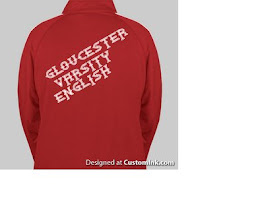Here's an overview of what we'll do on Monday, July 21
Don't forget to contact me before the session. I want to know who is coming. If you're not coming I want to know why.
*
Wide Sargasso Sea Seminar
Essential Questions
How can I better respond to a prompt that asks me to discuss the significance of a particular literary element or technique in a particular scene?
How can I better respond to a prompt that also asks me to discuss the significance of a particular literary element to a work as a whole?
Activities
Return Invisible Man responses with feedback.
Discuss reading the prompt closely (especially “scene,” “aspect,” “context,” and “work as a whole”). Make sure students understand these terms. Also introduce the term "passage".)
Discuss the writing of scene/passage analyses (assertion, inference, evidence, “so what?”).
Model exploration of a rich passage* (one passage from Invisible Man, one from Wide Sargasso Sea).
Have students complete “Paper Recap Sheet” in response to the discussion of the Invisible Man responses.
Students will turn in Invisible Man response “Recap” with Wide Sargasso Sea responses.
Students will be expected to show improvement on Wide Sargasso Sea responses. (Note: remind them that we will revisit Invisible Man in September.)
Have students lead and participate in class discussion* of three rich passages from Wide Sargasso Sea that they will help choose.
Look closely at Wide Sargasso Sea prompts. Make sure students understand the task and understand how they can use the feedback on the Invisible Man responses to make improvements.
Essential Questions
What is an identity? What affects the formation of an identity? How effect does one’s identity have on one’s life?
Activities
Discuss identity in Invisible Man.
Make assertions in response to the question: what does Invisible Man (as a whole) has to say about self and identity, etc.?
Discuss these assertions in small groups.
Offer and discuss supporting evidence.
Have small groups informally present assertions and support to the class as a whole.
Discuss the following questions using a 10-2 lecture formant and in small and large groups.
a. What is an “I”? What is a “self”? What is an “identity”? (What is character?) What does it mean to be “someone” or to be “nobody”? Define these denotatively, connotatively, idiolectively.
b. What affects the formation of a self/identity and the fate of that self/identity? In what ways is one’s self/identity a matter of choice? In what ways is one’s self and/or identity a matter of factors beyond one’s control? Then, how does one’s environment determine one’s fate? How does one’s “character” determine one’s fate? How do one’s choices determine one’s fate? Discuss in small and large group.
c. What are the effects of not knowing oneself (of not understanding oneself)? What are the effects of not knowing or not understanding the forces that are acting on one? What are the effects of changing or masking oneself in order to find a place within one’s environment? Discuss in small and large group.
d. How do conflicting allegiances, conflicting desires, conflicting roles, conflicting conceptions of our identities create identity crises? How does one resolve (or manage) these identity crises? How does one find a place or make a place for oneself in the world? What can prevent one from finding a place in the world? What are the implications?
Discuss identity in Wide Sargasso Sea.
Have students make assertions and ask questions about the importance of historical and cultural context in relation to identity conflict in Wide Sargasso Sea. (Use IM responses as guide/model.)
Then have students lead and participate in a discussion about identity in WSS. (Encourage them to use the essential questions discussed earlier in the session and to refer to the previously analyzed passages.)
Finally, have students lead and participate in a discussion that explores how Rhys’ uses particular literary techniques to develop ideas about the self and identity. (This will be a preliminary discussion in preparation for the blog prompts.)
ESSENTIAL QUESTIONS
What is your aesthetic philosophy? What makes good art? What makes a good book? What makes a good work of literature?
Activities
What is your aesthetic philosophy? (Read Keats poem “Ode on a Grecian Urn”.)
Is beauty important in art? Why? How can literature be beautiful? (What determines/creates beauty in literature?) Examples.
Is truth important in art? What kind of truth does art convey? (How can fiction be true? How is this different from other truths?) Is this form of truth valuable to our civilization? Why? Examples.
What makes good art? What makes good literature? What makes a “good book” or a “good read”? Define. Give examples.
Is Invisible Man a successful work of art? of literature? Is it a good book? A good read? How do we know? How can we judge?
Is Wide Sargasso Sea a successful work of art? of literature? Is it a good book? A good read? How do we know? How can we judge?
*means a handout will be given.
Thursday, July 17, 2008
Subscribe to:
Post Comments (Atom)














No comments:
Post a Comment